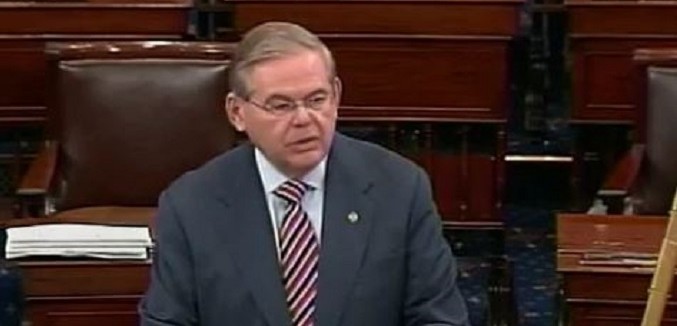Senators from across the political spectrum, including some who have largely stayed on the sidelines during recent debates revolving around Iran, on Thursday called on the White House to ensure that Congress is given a significant voice is shaping a comprehensive nuclear deal with the Islamic Republic. Politico conveyed a letter to White House and State Department officials from Sen. Rand Paul (R-KY).
“On a foreign policy issue of this magnitude, it is my strong belief that any further agreement – be it interim or final – that lifts statutory sanctions on Iran should require approval by the Congress before taking effect. Please let me know if it is your intent to seek this approval for any subsequent interim or final deal,” Paul said in the letter, which was also addressed to Secretary of State John Kerry as well as the leadership of the Senate Foreign Relations Committee.
Politico contextualized Paul’s concern as a reaction to recent statements by State Department Undersecretary of State Wendy Sherman, in which Sherman was asked about the possibility of unilateral Obama administration moves on Iran. Paul declared in his letter that “the intent of Congress was not simply to allow the President to waive all the sanctions in perpetuity at his behest.” Meanwhile Sen. Bob Menendez (D-NJ) took to the floor to sketch out the contours of what an acceptable deal with Iran would have to include, stating that Tehran must be forced to dismantle its atomic program to such an extent that “alarm bells will sound – from Vienna to Washington, Moscow and Beijing – should Iran restart its program anytime in the next 20 to 30 years.”
A final agreement should move back the timeline for nuclear breakout capability to beyond-a-year — and insist on a long-term, 20 year plus, monitoring and verification agreement. That is the only way to force Iran to abandon its nuclear weapons aspirations. Anything else will leave Iran on the cusp of becoming a nuclear state while it re-builds its economy and improves its ability to break-out at a future date.
David Albright, the head of the non-partisan U.S.-based Institute for Science and International Security (ISIS), has calculated that “for Iran to move from an interim to a final agreement, it would have to close the Fordow facility and remove between 15,000 and 16,000 of its 20,000 centrifuges.” Menendez committed to ensuring that “any deal the Administration reaches with Iran is verifiable, effective, and prevents them from ever developing even one nuclear weapon.”
[Photo: SenatorMenendezNJ / YouTube]




